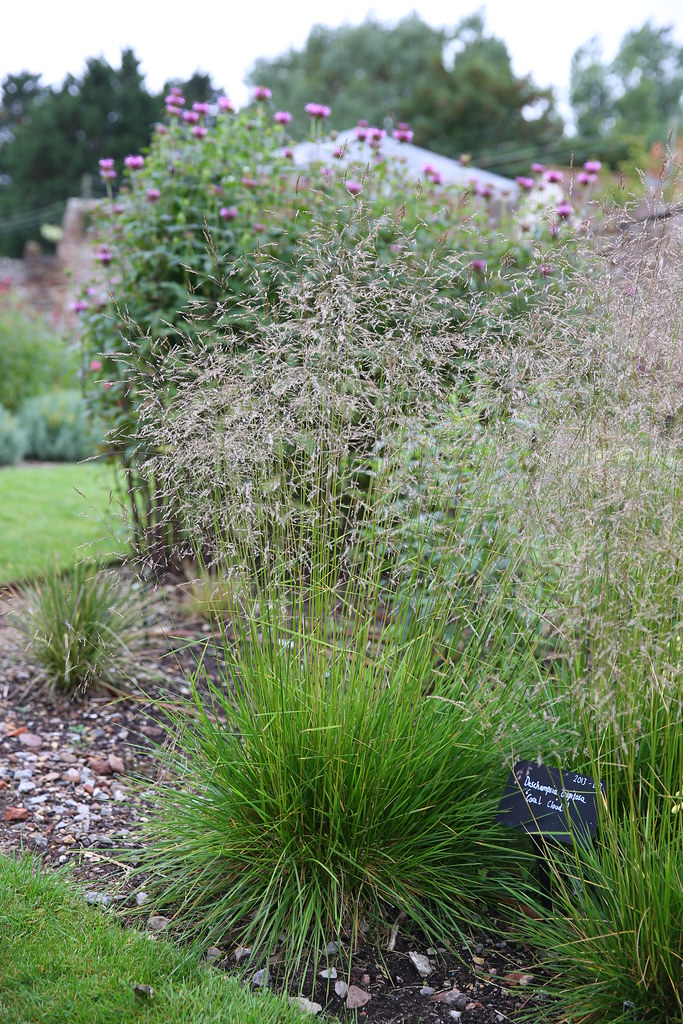The Walled Gardens of Cannington have been awarded National Plant Collection Status by cultivated plant conservation charity, Plant Heritage, for their Deschampsia collection.
The charity promotes and oversees the documenting, development and preservation of comprehensive collections of one group of plants in trust for the future. They ask for a substantial number of a type of plant to be held in order to achieve this status, the Walled Gardens currently holds nineteen different species and cultivars of Deschampsia.

Deschampsia named after the French Physician and naturalist, Louis Auguste Deschamps (1765-1842) is a genus of plants in the grass family. Over 40 species have been identified world-wide, three of which are found in the British Isles (Deschampsia cespitosa, D. flexuosa and D. setacea). Only the first two British species have been considered worthy of being introduced into horticulture, with D. cespitosa being used as an ornamental grass to great effect in many gardens.
Receiving the status has been a process of collecting plants and cataloguing them over the last two years. Visitors can find the Deschampsia, as well as the other two collections, of Santolina and Monarda, which are in development, in the Collections Garden which is planted up in a prairie or meadow style design.
Jayne Alcock, Grounds and Gardens Supervisor said,
“We are so pleased to have been awarded this status and the process has been a real team effort. Students and volunteers were involved in clearing, preparing and planting up the collection, with RHS Level 2 students giving the Deschampsia its annual ‘hair cut’ in spring each year. A special thanks goes to one of our volunteers, Alan Hold, who has set up the plant database for this and continues to play a pivotal role in the maintenance of the collection.”
Alan Hold, The Walled Gardens of Cannington volunteer said,
“Having gained National Collection status the challenge facing those involved is to learn how to maintain the collection in excellent condition whilst contending with the vagaries of the British weather. The next challenge is to then to disseminate this knowledge to the horticultural world, whether it be amateur or professional, student or expert.”




